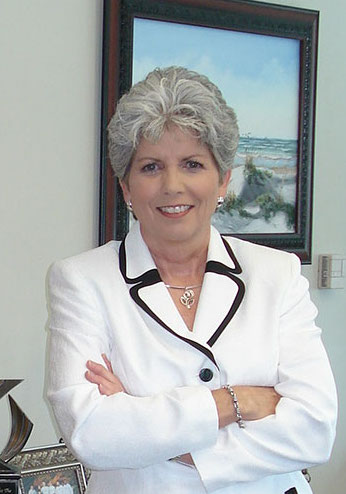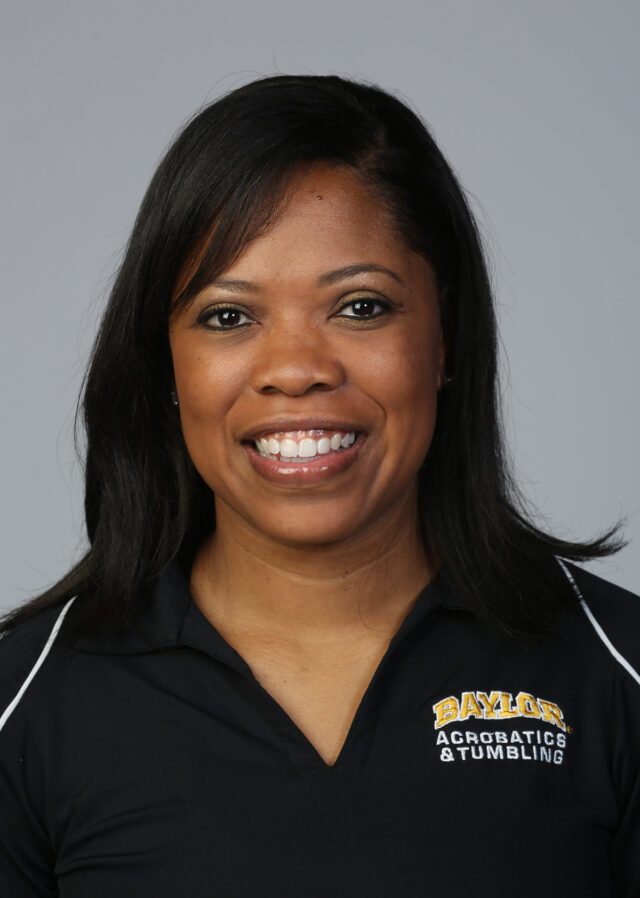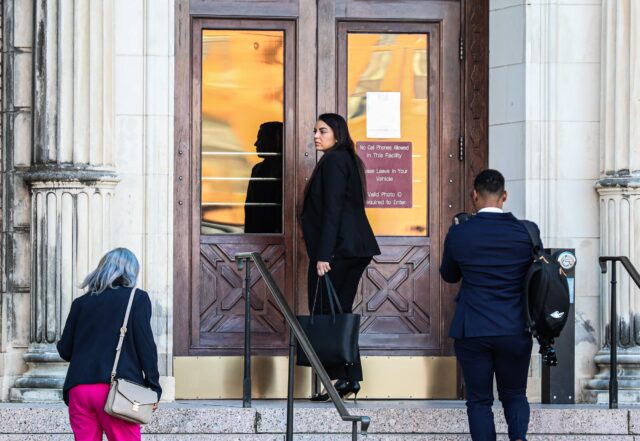By Jenna Fitzgerald | Editor-in-Chief
Testimony began Monday in the Title IX and negligence lawsuit filed by former Baylor student Dolores Lozano against the university, former head football coach Art Briles and former athletic director Ian McCaw. Much of the testimony centered on the history of Baylor’s sexual assault scandal and Title IX policies.
The civil trial is the culmination of a legal process that has endured for more than seven years. Lozano’s complaint is a domestic violence matter from 2014 regarding three alleged instances of physical assault by her ex-boyfriend, former Baylor football player Devin Chafin.
In the plaintiff’s opening statement, Lozano’s attorney Zeke Fortenberry started by remarking on the newfound success of Baylor’s football program in the early 2010s.
“In Texas, football is king, and in college football, it’s money,” Fortenberry said. “Baylor University chose to put their time, their focus and their money in the football program. And with Art Briles as coach, it worked.”
Although Baylor’s football team was winning on the field, Fortenberry said “for women, it was a different story.”
Fortenberry said Lozano was “just the next woman in line to be beaten and assaulted by a football player.” He described the three alleged instances of physical assault and displayed photos of the bruising she suffered. He then provided a list of multiple Baylor employees to whom Lozano made reports, saying “she knew she needed help, she knew she needed protection and she wanted things to get better.”
According to Fortenberry, these assaults were a result of the university’s “de facto policy of deliberate indifference,” and Baylor, Briles and McCaw failed to perform their duty to act.
“They stuck to what they’d always done — that football was king, and the Baylor way was to look the other way,” Fortenberry said.
In the defendants’ opening statement, Baylor attorney Julie Springer said “there is no question that bad things happened and mistakes were made at Baylor,” but “in Dolores Lozano’s case, Baylor got it right.”
Springer said Lozano went to the Health Center and the Counseling Center in addition to receiving assistance from Student Life. However, Lozano chose not to press criminal charges against Chafin or to pursue conduct charges at Baylor. Springer said “she had every right to make that choice” because “you don’t force victims to report; you empower them.”
Springer also said that because there was no formal investigation, only Lozano and Chafin know what happened, although they give “starkly different accounts.” She said Lozano has to prove that Chafin assaulted her and that the defendants played a role in it, because since it deals with domestic violence, such assaults would be the result of “uniquely personal circumstances.”
In their respective opening statements, Briles’ attorney J. Reid Simpson said Briles was not aware of Lozano’s particular case, while McCaw’s attorney Thomas Brandt said McCaw never spoke with Lozano directly but confirmed all proper steps had been taken.

Following opening statements, the first witness to take the stand was James Cary Gray — a member of the Baylor Board of Regents from 2012 to 2021. He discussed the board’s response to institutional Title IX problems, primarily in terms of the Pepper Hamilton Report and the Findings of Fact.
The board enlisted the Pepper Hamilton law firm to conduct an internal audit of the university’s Title IX compliance following the sexual assault convictions of two Baylor football players, Tevin Elliott and Sam Ukwuachu, in 2014 and 2015. Gray said Pepper Hamilton collected data from phones and computers and “a million documents” in the course of its investigation, in addition to conducting 65 interviews with Baylor employees.
Gray said Pepper Hamilton was not meant to find “every single incident” in this process, and it did not have information on Lozano’s assault. Rather, it focused on the deficiencies in Baylor’s response to five specific cases.
Pepper Hamilton gave a presentation of its findings to the board on May 11-12, 2016. When asked about the contents of this presentation, Gray said “it’s beyond — it’s really hard to describe how horrible it was.” Pepper Hamilton subsequently wrote a series of 105 formal recommendations to address the structural Title IX problems.
Gray said the board published the Findings of Fact on May 26, 2016, to explain the Pepper Hamilton Report “as much as could be explained.” Following publication, Gray said he received numerous complaints and threats of violence, and Baylor saw a decline in donors.
Finally, Gray commented on the board’s disciplinary action toward Briles, McCaw and then-Baylor President Ken Starr. Briles was fired, McCaw was suspended and subsequently resigned and Starr was removed as president. Gray said he stands by the decision to fire Briles — who he said was “very upset” and “crying” when meeting with the board — but he now believes they should have fired McCaw too.
“We needed to have a culture change in the football program,” Gray said.

The next witness to take the stand was Bethany McCraw — the associate dean for student conduct administration who oversees Judicial Affairs. McCraw said she never commenced a formal investigation into Lozano’s case because Lozano didn’t request conduct charges.
“If they’ve been involved in an assault, you want to give them something they have control over,” McCraw said. “I knew that she had resources. People were working with her. She may not want to come to the conduct office, and that’s fine.”
McCraw said Lozano’s case was “a report that [she] kept behind [her] desk,” and it was probably months before she closed the case.
“Our process is an educational process. We’re not the criminal process,” McCraw said. “Those are very different processes. We’re letting that student make that choice. What are they comfortable with? … You don’t launch an investigation without permission from the complainant.”
Quick testimonies from Odell James, a former member of the football operations staff, and Charles Connor, a patrol sergeant with Waco PD, were followed by the final testimony of the day from LaPrise Williams — the former head coach for the acrobatics and tumbling team.

Williams was the first Baylor employee to whom Lozano reported her assault. She described Lozano, who was working as a team manager at the time, as very responsible and well put together. She said it was unusual for Lozano to miss a practice, so when she was absent the day of the first alleged assault, she reached out and met with her.
“She didn’t look herself,” Williams said. “She was visibly upset. I did notice at the time, if I recall, she had some bruising. … She told me that she had been beaten up by her boyfriend basically.”
Williams said she confirmed Lozano was OK before having conversations about her options, encouraging her to seek medical and counseling help and to report it to the police. Williams then reported it to associate athletic director Nancy Post and sports chaplain Wes Yeary. Williams said she noticed a change in Lozano following the alleged incidents.
Lozano, who now serves as a justice of the peace in Harris County, was present at the trial alongside her husband, Kory Haywood.
Proceedings will continue at 9 a.m. Tuesday and will likely last two weeks. Briles and McCaw are expected to testify.



